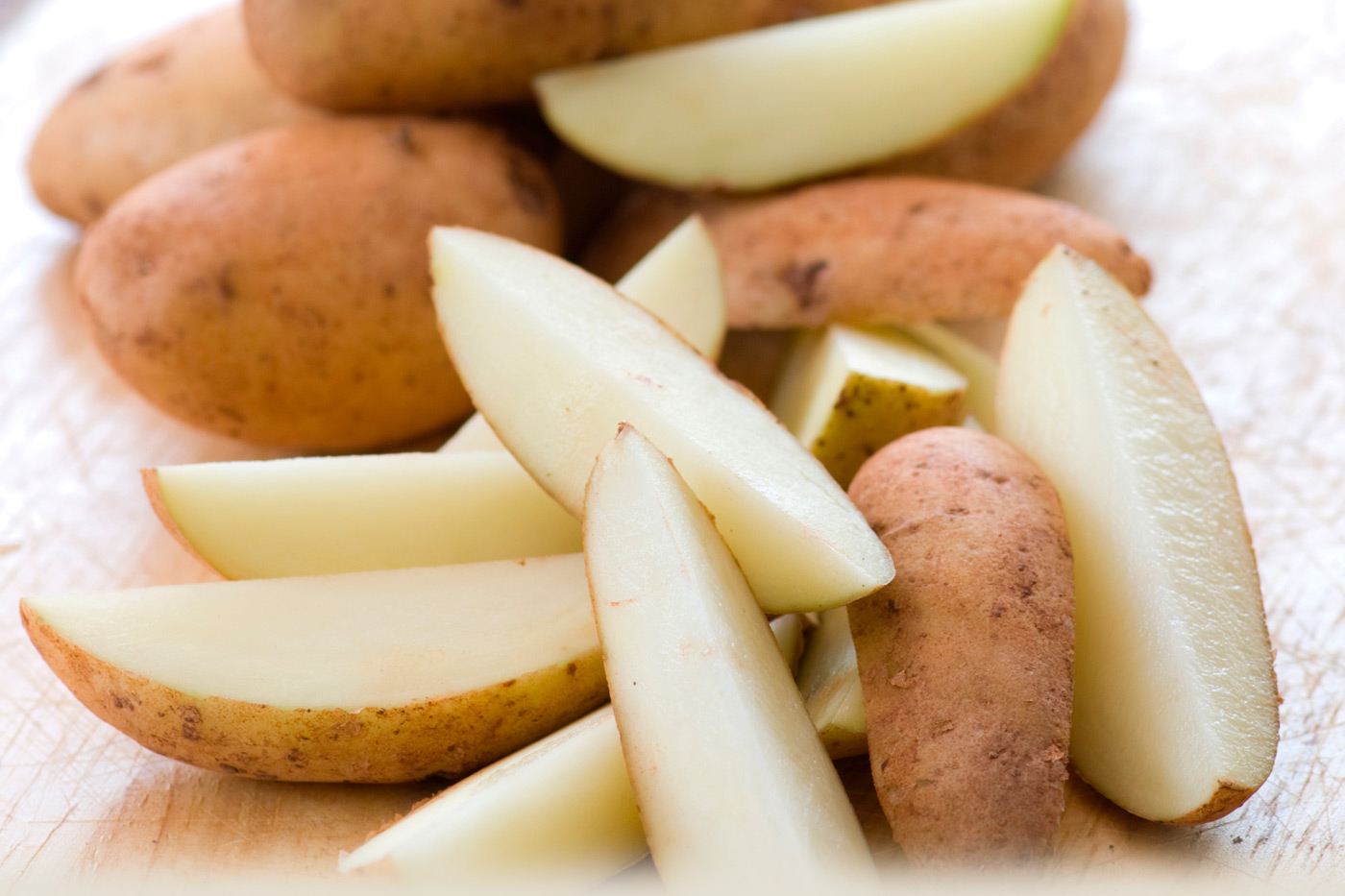What we eat and drink can protect our bodies against myriad health woes. Newer studies have shown that over 50% of heart disease cases are preventable with the right food choices. When one thinks of the link between diet and heart health, certain foods immediately come to mind. Although red wine, green tea and oatmeal may be the highly touted superstars of heart protection, there are actually many less recognized foods that can do the trick just as well, if not better.
-
1 Fatty Fish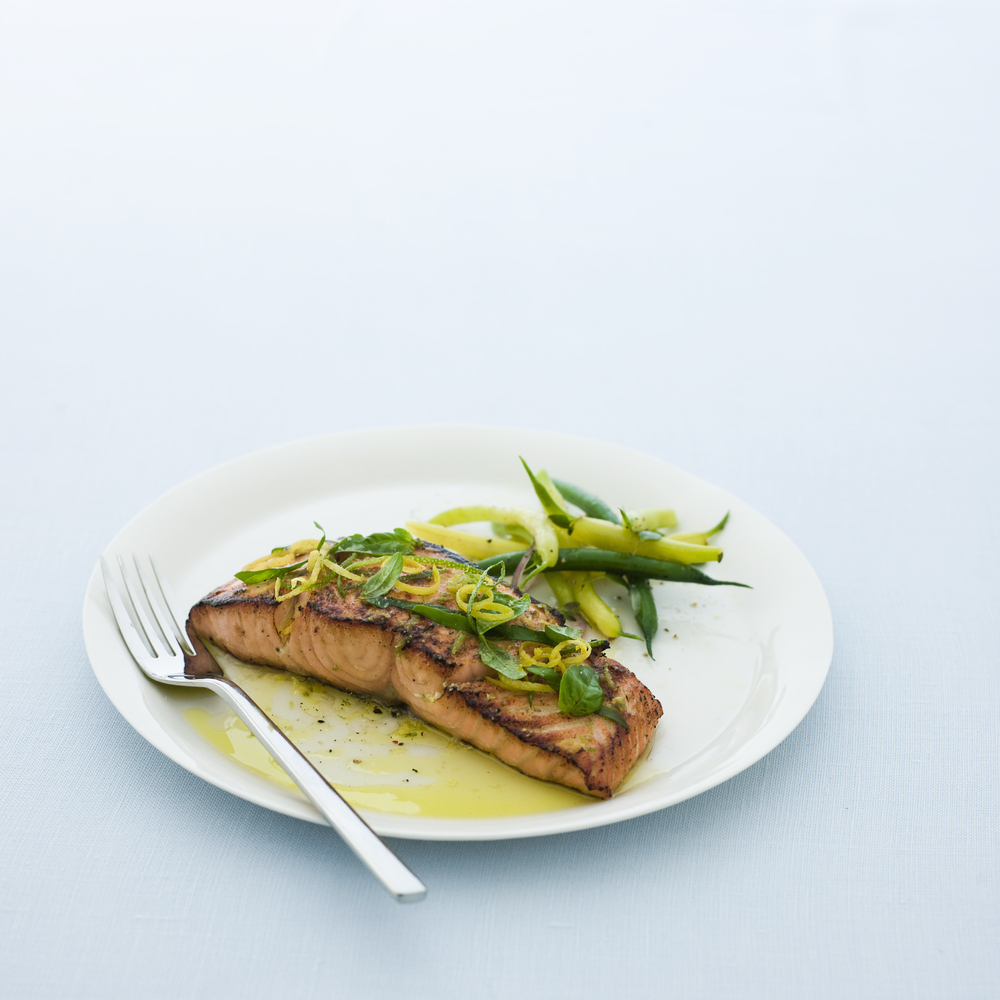 Iain Bagwell via Getty ImagesFatty fish like tuna, salmon, mackerel and sardines contain high levels of omega-3 fatty acids, shown in studies to lower the risk of arrhythmia (irregular heart beat) and atherosclerosis (plaque build-up in the arteries). Omega-3 fatty acids are also shown to decrease triglycerides, an important measure of heart health. The American Heart Association recommends eating fatty fish at least twice a week. Each serving is 3.5 ounces cooked, or about ¾ cup of flaked fish. Grill a salmon steak and serve over a bed of sautéed greens, or toss a can of water-packed tuna on top of a veggie-rich salad for a heart-healthy and tasty meal. If eating fish is not for you, omega-3 fatty acids are also available as dietary supplements.
Iain Bagwell via Getty ImagesFatty fish like tuna, salmon, mackerel and sardines contain high levels of omega-3 fatty acids, shown in studies to lower the risk of arrhythmia (irregular heart beat) and atherosclerosis (plaque build-up in the arteries). Omega-3 fatty acids are also shown to decrease triglycerides, an important measure of heart health. The American Heart Association recommends eating fatty fish at least twice a week. Each serving is 3.5 ounces cooked, or about ¾ cup of flaked fish. Grill a salmon steak and serve over a bed of sautéed greens, or toss a can of water-packed tuna on top of a veggie-rich salad for a heart-healthy and tasty meal. If eating fish is not for you, omega-3 fatty acids are also available as dietary supplements. -
2 Onions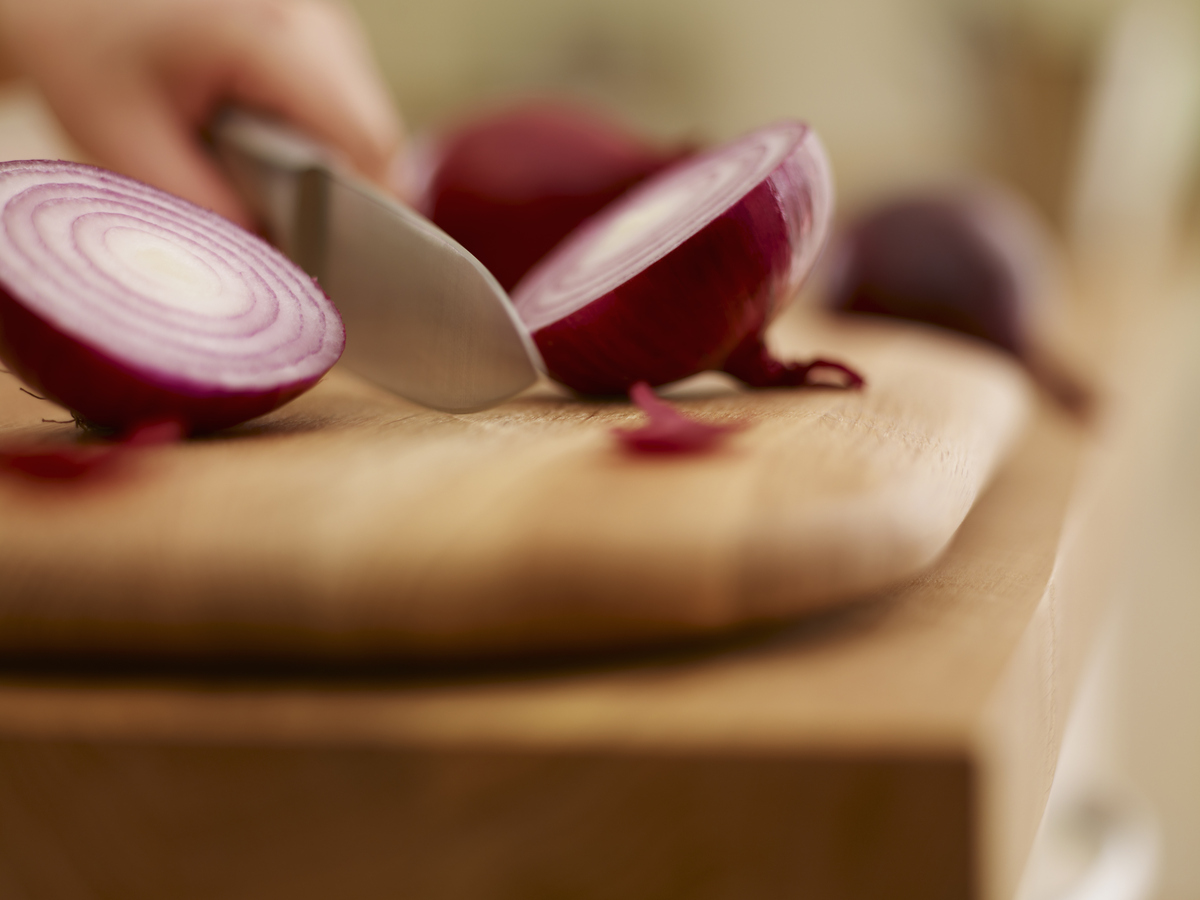 Adam Gault via Getty ImagesWhile chopping onions may make you cry, their considerable cardiovascular benefits should bring a smile through your tears. The flavonoids found in onions lower cholesterol, inhibit hardening of the arteries, enhance elasticity of blood vessels, and help to maintain healthy blood pressure. One medium-sized onion equals approximately one cup of onion when chopped; this is an appropriate serving size. While raw onions contain a whopping load of protective compounds, even cooked onions still weigh in heavily on the protective side. Chop onions into salads, or cook them with vegetables, fish and lean meats.
Adam Gault via Getty ImagesWhile chopping onions may make you cry, their considerable cardiovascular benefits should bring a smile through your tears. The flavonoids found in onions lower cholesterol, inhibit hardening of the arteries, enhance elasticity of blood vessels, and help to maintain healthy blood pressure. One medium-sized onion equals approximately one cup of onion when chopped; this is an appropriate serving size. While raw onions contain a whopping load of protective compounds, even cooked onions still weigh in heavily on the protective side. Chop onions into salads, or cook them with vegetables, fish and lean meats. -
3 Potatoes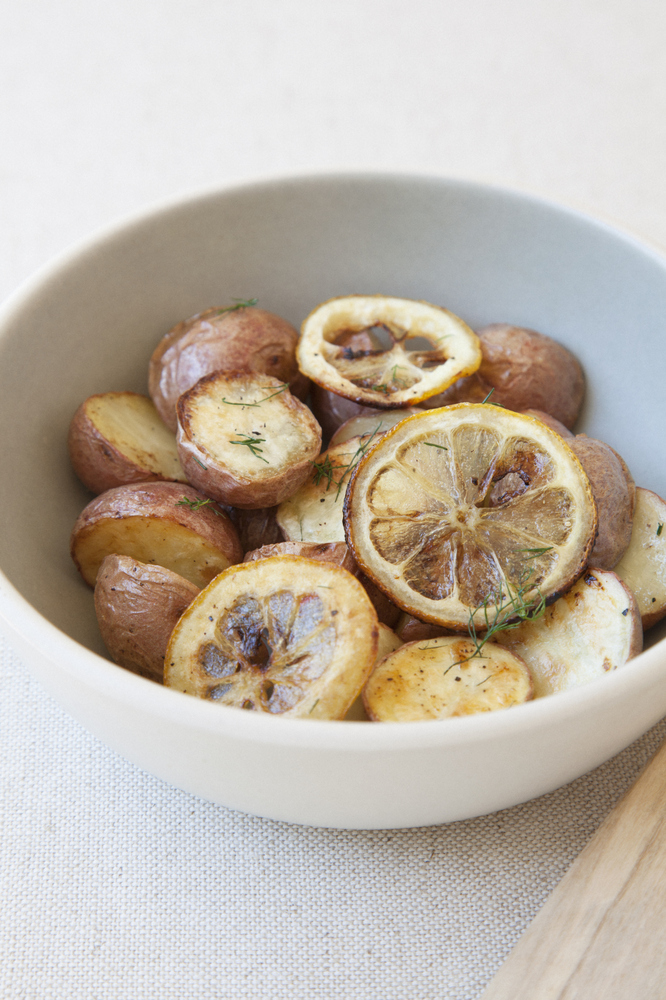 Karen Beard via Getty ImagesMany people shun potatoes because they’re white and look like a “bad” starch. As long as they’re not deep fried or mashed with loads of butter and heavy cream, potatoes can be good for your heart. Potatoes are loaded with kukoa-mines, which are plant chemicals that help lower blood pressure. In addition, one medium baked potato (including the skin) provides 20% of your daily potassium, which helps to manage high blood pressure. The key to making potatoes a regular part of a healthy diet is to eat them in moderation, to use low-fat cooking methods like baking or steaming and to avoid dousing them with high-fat, high-calorie toppings like cheese, butter and sour cream. When consuming mashed or roasted potatoes, limit your portion to about one-cup. An appropriate portion for a baked potato should be about the size of a computer mouse.
Karen Beard via Getty ImagesMany people shun potatoes because they’re white and look like a “bad” starch. As long as they’re not deep fried or mashed with loads of butter and heavy cream, potatoes can be good for your heart. Potatoes are loaded with kukoa-mines, which are plant chemicals that help lower blood pressure. In addition, one medium baked potato (including the skin) provides 20% of your daily potassium, which helps to manage high blood pressure. The key to making potatoes a regular part of a healthy diet is to eat them in moderation, to use low-fat cooking methods like baking or steaming and to avoid dousing them with high-fat, high-calorie toppings like cheese, butter and sour cream. When consuming mashed or roasted potatoes, limit your portion to about one-cup. An appropriate portion for a baked potato should be about the size of a computer mouse. -
4 Flax seeds background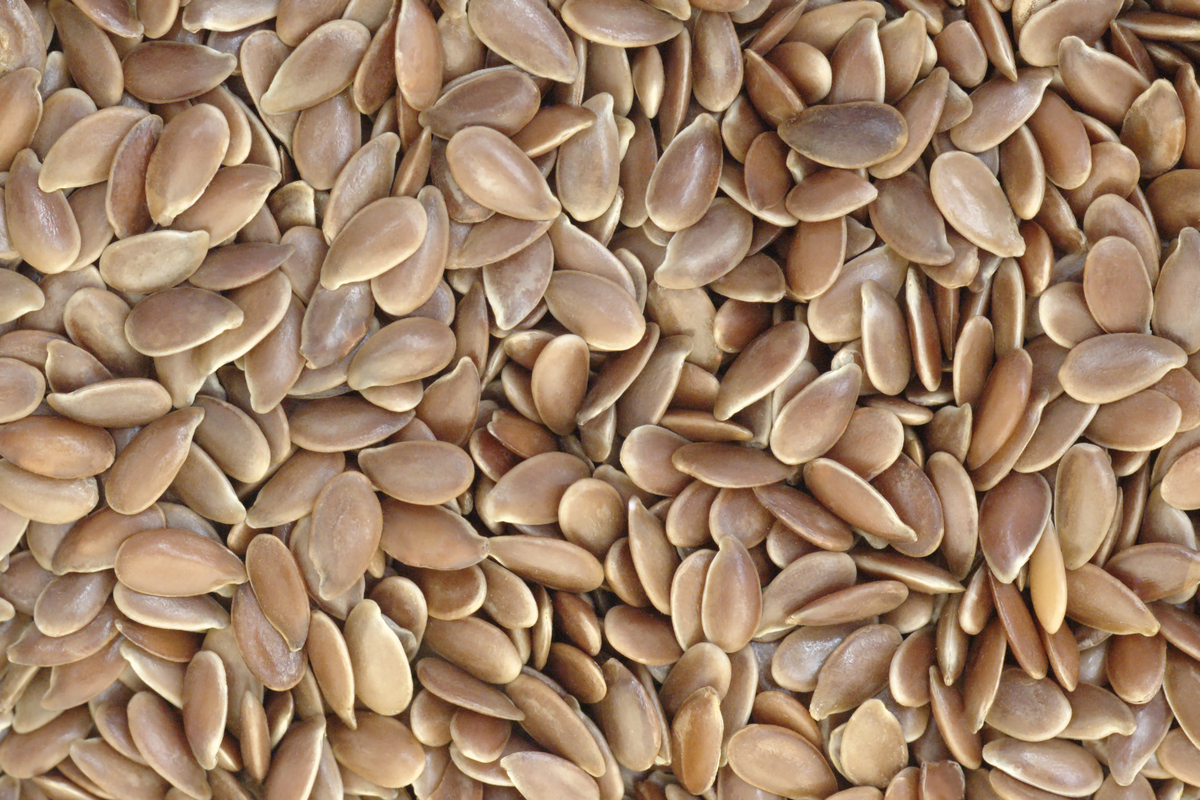 Adriana Harakalova via Getty ImagesDiets rich in flaxseed omega-3 fatty acids help prevent hardening of the arteries and keep cholesterol levels in check. Similarly, the omega-3s and antioxidant properties in flaxseeds may reduce the inflammation that accompanies illnesses such as Parkinson’s disease and asthma by helping block the release of specific pro-inflammatory agents. Many nutrition experts recommend ground flaxseed over whole flaxseed because the ground form is easier for the body to digest. Whole flaxseed may pass through the intestine undigested, which means that you won’t get all the health benefits that it offers. If your grocery store does not sell the ground version, simply grind it yourself in a food processor or coffee grinder. Incorporating flaxseed into your daily diet is actually quite easy. You can simply add a portion (about one tablespoon) to your breakfast cereal, yogurt, smoothie/shake, or even ice cream.
Adriana Harakalova via Getty ImagesDiets rich in flaxseed omega-3 fatty acids help prevent hardening of the arteries and keep cholesterol levels in check. Similarly, the omega-3s and antioxidant properties in flaxseeds may reduce the inflammation that accompanies illnesses such as Parkinson’s disease and asthma by helping block the release of specific pro-inflammatory agents. Many nutrition experts recommend ground flaxseed over whole flaxseed because the ground form is easier for the body to digest. Whole flaxseed may pass through the intestine undigested, which means that you won’t get all the health benefits that it offers. If your grocery store does not sell the ground version, simply grind it yourself in a food processor or coffee grinder. Incorporating flaxseed into your daily diet is actually quite easy. You can simply add a portion (about one tablespoon) to your breakfast cereal, yogurt, smoothie/shake, or even ice cream. -
5 Citrus fruits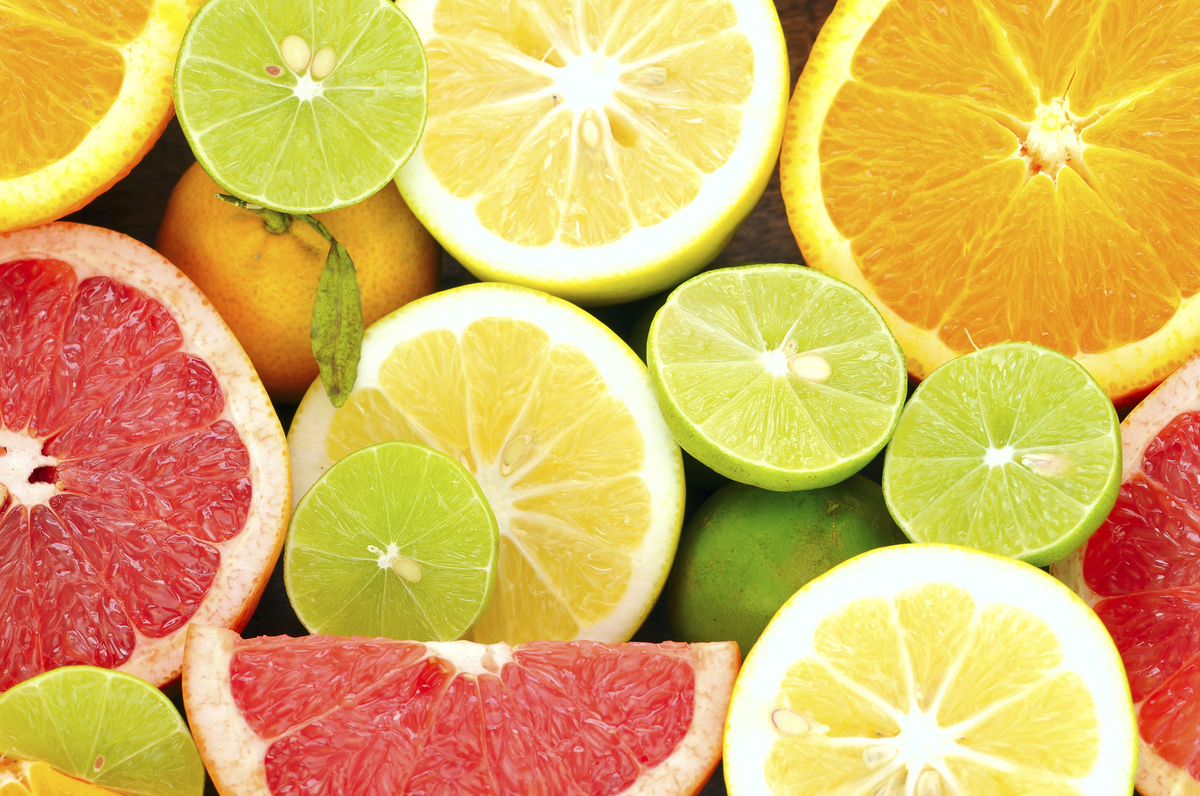 xeni4ka via Getty ImagesCitrus fruits like oranges, grapefruits, lemons, and limes are packed with flavaonoids that lowers blood pressure and reduces artery inflammation. Citrus also contains hesperidin, a plant chemical that improves blood flow to the heart, and vitamin C, a potent protector against stroke. Stick to whole fruits instead of the fruit juice varieties with added sugar. Enjoy ½ fresh grapefruit with breakfast, or a splash of lemon juice or lime juice in your water for these benefits.
xeni4ka via Getty ImagesCitrus fruits like oranges, grapefruits, lemons, and limes are packed with flavaonoids that lowers blood pressure and reduces artery inflammation. Citrus also contains hesperidin, a plant chemical that improves blood flow to the heart, and vitamin C, a potent protector against stroke. Stick to whole fruits instead of the fruit juice varieties with added sugar. Enjoy ½ fresh grapefruit with breakfast, or a splash of lemon juice or lime juice in your water for these benefits. -
6 Brown rice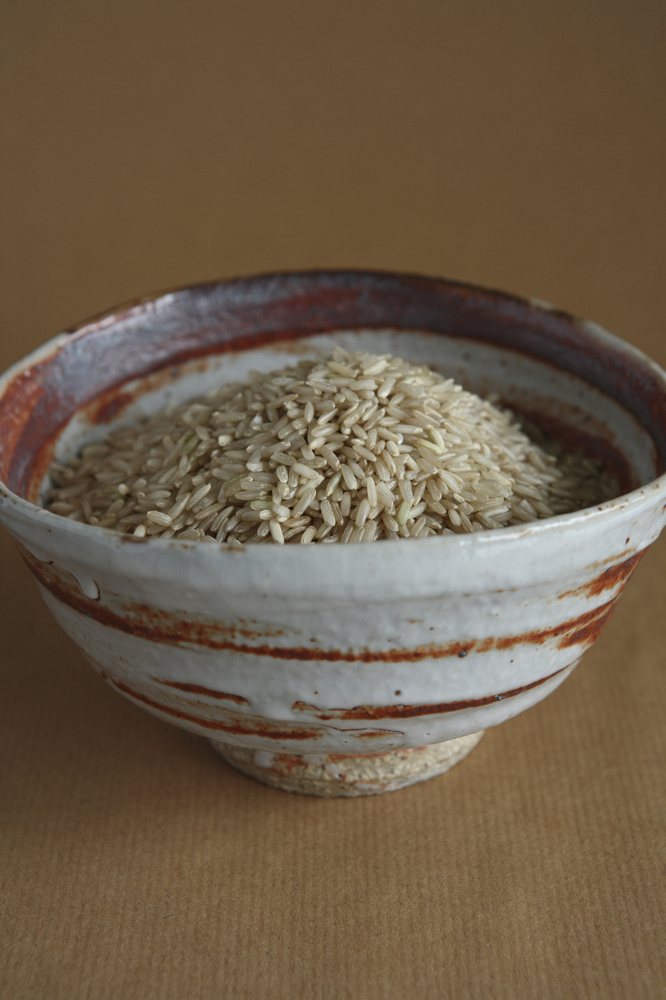 Andy Stewart London via Getty ImagesBrown rice, a whole grain rich in dietary fiber, is proven to reduce the buildup of arterial plaque and reduce the risk of heart disease and high cholesterol. New research suggests a component in a layer of tissue surrounding grains of brown rice may work against angiotensin II. Angiotensin II is a protein and known culprit in the development of high blood pressure and atherosclerosis. Stick to a ½ cup cooked and pair with a lean protein (like chicken, shrimp, or beef) and lots of vegetables for a well-balanced meal.
Andy Stewart London via Getty ImagesBrown rice, a whole grain rich in dietary fiber, is proven to reduce the buildup of arterial plaque and reduce the risk of heart disease and high cholesterol. New research suggests a component in a layer of tissue surrounding grains of brown rice may work against angiotensin II. Angiotensin II is a protein and known culprit in the development of high blood pressure and atherosclerosis. Stick to a ½ cup cooked and pair with a lean protein (like chicken, shrimp, or beef) and lots of vegetables for a well-balanced meal. -
7 Olive oil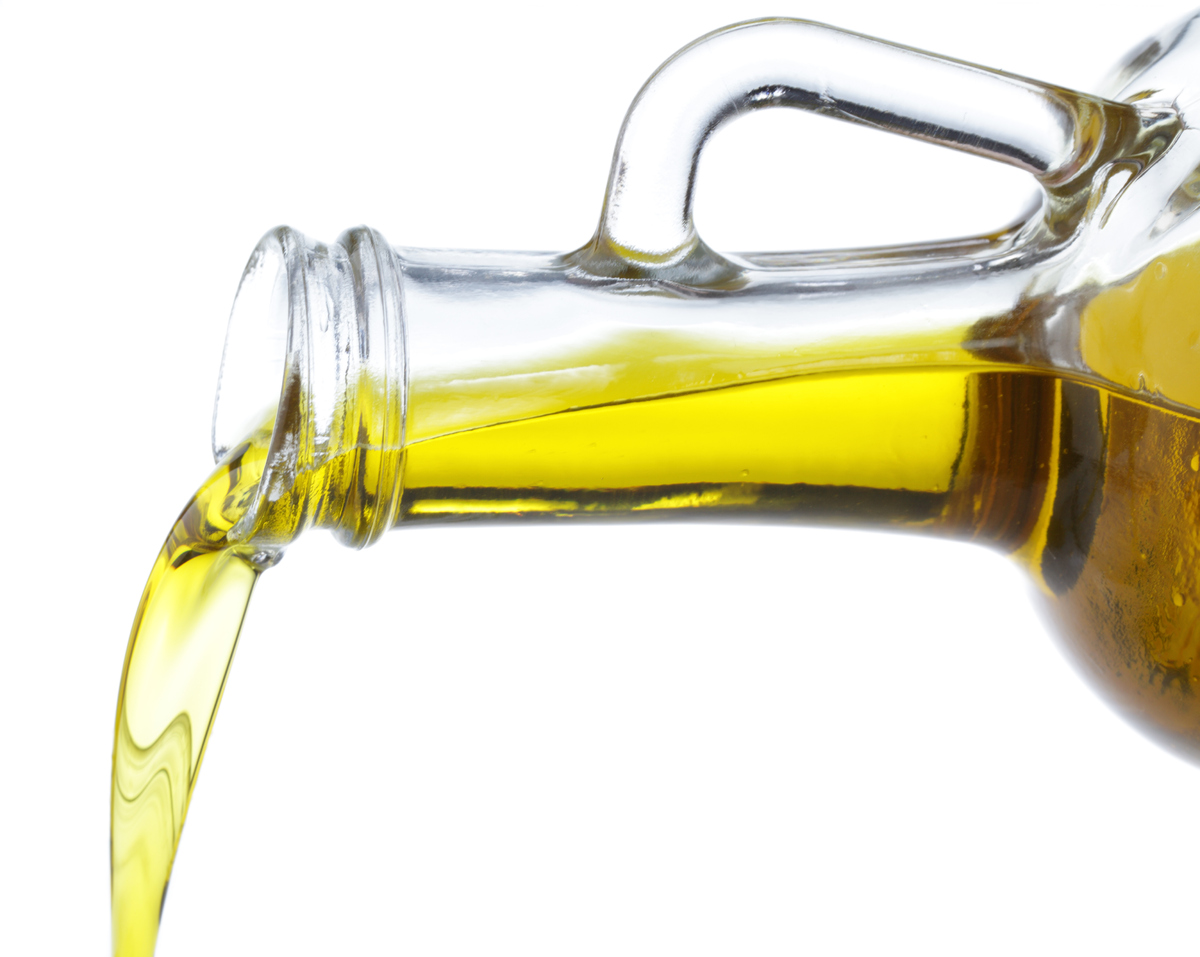 Lilyana Vinogradova via Getty ImagesStudies reveal that the fatty acids and antioxidants in extra virgin olive oil have some powerful health benefits, such as a reduced risk of heart disease. In one study, people at high risk for heart disease who followed the Mediterranean diet (high in grains, fruits, vegetables) supplemented by nuts and at least four tablespoons a day of olive oil reduced their risk of heart attacks, strokes, and dying by 30%. Overall, olive oil is a good source of monounsaturated fats, which can help reduce both cholesterol and blood sugar levels. Extra virgin olive oil protects against heart disease by reducing inflammation in the body, preventing unwanted blood clotting, and lower blood pressure. Because oils are so nutrient dense, limit the portion size to one tablespoon at a given time.
Lilyana Vinogradova via Getty ImagesStudies reveal that the fatty acids and antioxidants in extra virgin olive oil have some powerful health benefits, such as a reduced risk of heart disease. In one study, people at high risk for heart disease who followed the Mediterranean diet (high in grains, fruits, vegetables) supplemented by nuts and at least four tablespoons a day of olive oil reduced their risk of heart attacks, strokes, and dying by 30%. Overall, olive oil is a good source of monounsaturated fats, which can help reduce both cholesterol and blood sugar levels. Extra virgin olive oil protects against heart disease by reducing inflammation in the body, preventing unwanted blood clotting, and lower blood pressure. Because oils are so nutrient dense, limit the portion size to one tablespoon at a given time. -
8 Dark Chocolate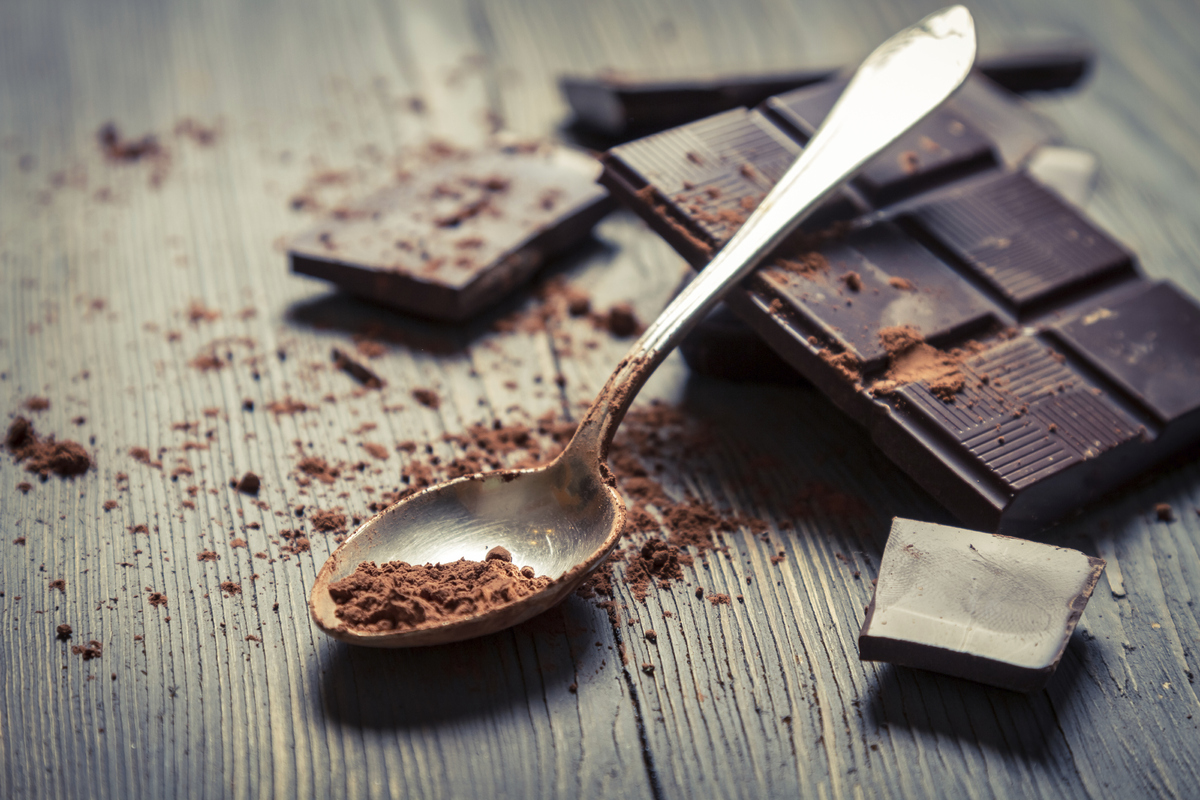 Jacek Nowak via Getty ImagesSeveral studies have now shown that dark chocolate may benefit the health of your heart. A 2012 study that found that daily dark chocolate consumption (chocolate made up of at least 60-70% cocoa) could reduce nonfatal heart attacks and stroke in people at high risk of heart disease. Dark chocolate contains flavonoids called polyphenols, which may help blood pressure, clotting, and inflammation. Unfortunately, milk chocolate and sugar-laden candy bars don’t quite do the trick when it comes to protecting your heart. Stick to 1-ounce portions (about the size of four dice) in moderation to protect your heart and not influence your waist.
Jacek Nowak via Getty ImagesSeveral studies have now shown that dark chocolate may benefit the health of your heart. A 2012 study that found that daily dark chocolate consumption (chocolate made up of at least 60-70% cocoa) could reduce nonfatal heart attacks and stroke in people at high risk of heart disease. Dark chocolate contains flavonoids called polyphenols, which may help blood pressure, clotting, and inflammation. Unfortunately, milk chocolate and sugar-laden candy bars don’t quite do the trick when it comes to protecting your heart. Stick to 1-ounce portions (about the size of four dice) in moderation to protect your heart and not influence your waist.
Share this:
- Click to share on X (Opens in new window) X
- Click to share on Facebook (Opens in new window) Facebook
- Click to share on Telegram (Opens in new window) Telegram
- Click to share on WhatsApp (Opens in new window) WhatsApp
- Click to share on Mastodon (Opens in new window) Mastodon
- More
- Click to print (Opens in new window) Print
- Click to email a link to a friend (Opens in new window) Email
- Click to share on LinkedIn (Opens in new window) LinkedIn
- Click to share on Reddit (Opens in new window) Reddit
- Click to share on Tumblr (Opens in new window) Tumblr
- Click to share on Pinterest (Opens in new window) Pinterest
- Click to share on Pocket (Opens in new window) Pocket

